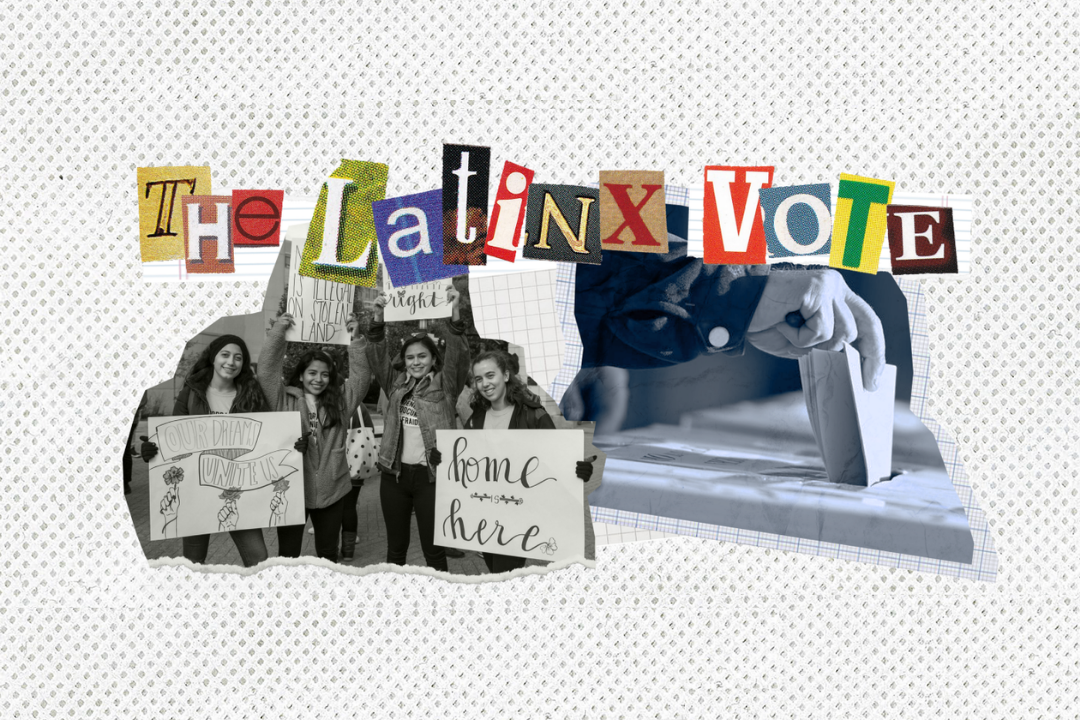Written by: Mariela Cabanillas, Cisneros Class of 2021
This 2020 election is a huge milestone for me, because it marks the first time that I am old enough to vote in a presidential election. The first time I ever voted was the 2018 midterm elections in my home state of Maryland. I even remember skipping my Comparative Politics lecture so I could spend the moment with my mom. Being a Latina, first-generation college student, I want nothing more than to provide the future generations of Latinxs a better and brighter future. Voting is just one way I can play an active role not just in my future, but the future of my community.
Today marks 42 days until the upcoming 2020 presidential election. This presidential campaign cycle is unconventional, as the world continues to face the COVID-19 pandemic, the ongoing Black Lives Matter protests, and civil unrest. While this election is definitely one all Americans are watching with a close eye, Hispanic/Latinx individuals have a crucial role at the polls this November.
According to the Pew Research Center, Hispanics/Latinxs are the largest racial minority and ethnic group in the electorate accounting for over 13% of eligible voters. This means that about 32 million Latinxs are estimated to be eligible to vote in 2020 which is a 27.3 million increase from 2016.
The Latinx/Hispanic community has grown over the past couple years, increasing our influence in American society. Now, more than ever, it is crucial that we make our voices heard.
So, what options are available when it comes to casting your vote this upcoming November? For starters, Voto Latino, a grassroots political organization aimed at empowering Latinx voters, is a great way to get you started, and you don’t need to identify as Latinx to utilize their resources! When preparing to vote, consider these six, easy steps, they recommended:
1. Check that you are registered to vote. If you’re part of the GW community, you can also use GW TurboVote!
2. Once you’re registered, choose your preferred method of voting: in person or by mail.
3. If you prefer to avoid the polls, request your mail-in-ballot here. Do some research to check if your state automatically sends you a mail-in-ballot or if you are required to request it.
4. We are still in a pandemic! Make sure to follow COVID-19 safety precautions if you’re voting in person.
5. Additionally, find out if your state offers early voting so you can avoid some crowds. If you do decide to vote in person, make sure you know your rights when doing so!
6. Lastly, it is important to read up on some of the pressing issues, so you can vote for a candidate who most aligns with your values.
As you prepare to cast your vote, a bigger question to consider remains: why vote?
Personally, there are two main reasons why I vote. Firstly, I’m a Sociology major who is committed to advocacy for marginalized communities. Poverty, immigration, mass incarceration, gun violence prevention, and police brutality are just some of the areas that I am passionate about and have followed closely in the news and in my classes at GW.
Unfortunately, these issues disproportionately affect Black and Brown communities.
Therefore, I vote to elect officials who will have a legislative voice when it comes to enacting policies for these communities that are experiencing the ongoing cycle of oppression.
Second, I vote para la comunidad (for the community). As mentioned, the Hispanic/Latinx community is a crucial part of the voting bloc this upcoming election. We have the numbers and we have the power. However, not everyone in our community holds the same version of this power. When I vote, I’m not just exercising my right, I’m using a privilege so many others are denied. I recognize that many in our community are non-citizens or undocumented. While these individuals contribute highly to American society in a myriad of ways such as by paying taxes and comprising a significant part of the U.S. labor force, they aren’t able to vote. As a result, they are not represented by politicians in their district/state, yet they are deeply affected by the policies these politicians enact.
I vote not because I should, but because I can.
Voting has helped elect leaders who advocate for legislation benefiting our community, such as New Jersey Governor, Phil Murphy, who passed a law allowing undocumented immigrants to obtain professional and occupational licenses. I vote not just for the next president, but also for representatives in my state and town. We have a voice, so let’s use it at the polls.
Mariela Cabanillas is a fourth-year Cisneros Scholar in the GW Columbian College of Arts & Sciences. Last semester she studied abroad in Santiago, Chile. Mariela’s views are her own and not necessarily reflective of the Cisneros Institute.


